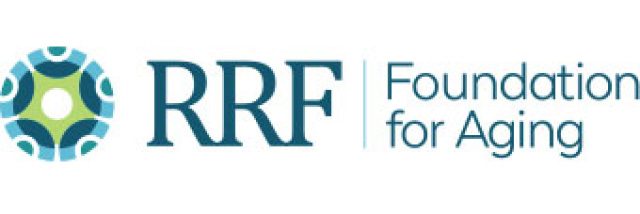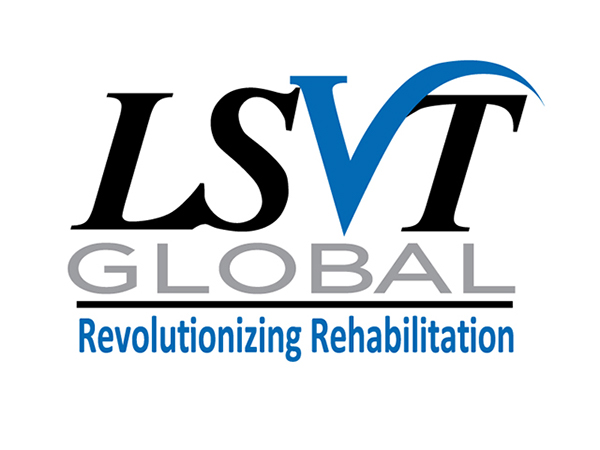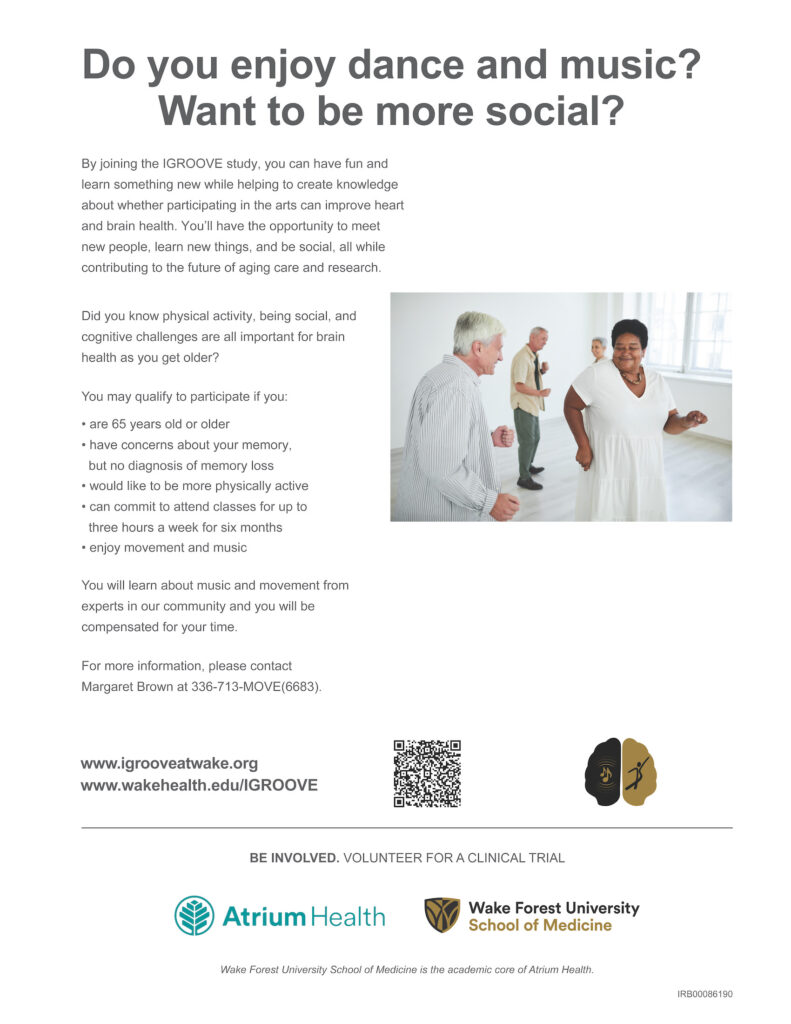Research Studies
IGROOVE Study
Dance movement is a form of physical activity that may benefit the brain as much or more than structured aerobic exercise. Despite the potential of dance as an intervention to promote neurocognitive health, gaps in knowledge about essential intervention components are a barrier to definitive trials, specifically:1) a lack of specificity on key prescription parameters including how many times a week dance classes should be taught, 2) need for better estimates of how large an effect dance has on fitness and the brain, and 3) little understanding of the expected time course for change in fitness and the brain in response to dance. The primary aim of this proposal is to test whether weekly dance frequency differentially modifies key outcomes, and from this to test effect sizes to determine sufficient sample sizes for a larger-scale trial. Dance movement inherently involves simultaneous cognitive stimulation through motor learning and dual-tasking; social interactions; aerobic physical activity that elevates heart rate and improves cardiorespiratory fitness; and improves balance and reduces fall risk. Dance also satisfies key antecedents of lasting behavior change outlined in contemporary behavioral theories including self-efficacy, intrinsic motivation, autonomy, and relatedness. Dance is also culturally relevant and has been practiced spontaneously for thousands of years. This means dance may result in better long-term adherence than more commonly studied forms of aerobic exercise like brisk walking, where data from our group and others shows that adherence drops significantly after intervention ends. This proposal plans to assess outcomes of 1x/weekly, 2x/weekly, and 3x/weekly dance movement classes and 1x/week music appreciation class control at 4 time-points over 6 months to determine the time course of changes in cardiorespiratory fitness, cognition, and key secondary outcomes in 160 adults ≥ 65 years old at risk for Alzheimer’s disease due to subjective cognitive decline. 1x/weekly is common for community classes and has been tested in multiple dance studies; 2x/weekly is most common in dance research; and 3x/weekly is most common for aerobic exercise interventions like treadmill walking that target CRF. We aim to determine the optimal frequency of dance movement intervention for a Phase III trial that will effect change in relevant outcomes while maintaining attendance.

IMOVE Study
Dementia is a progressive decline in cognition that impairs a person’s ability to perform activities of daily living. Changes in mood, gait, and balance are prominent secondary symptoms of Alzheimer’s dementia that can dramatically decrease quality of life for the person with dementia and increase caregiver burden. The overall aim of this study is to determine the independent and combined effects of dance movement and social engagement on quality of life in people with early-stage dementia, and test the neural mechanisms of these effects.

IMPROVment® from Home
We are currently working on some exciting new tools that will be user-friendly for homebound populations that can benefit from the IMPROVment® method. These tools include virtual-based mediums and apps for mobile devices. While still in the intensive design phase, early testing has shown promise for easy-to-use options that can be utilized by caregivers or participants alone. We will post updates as they become available.

Effects of Improvisational Dance on Non-Motor Symptoms Among People with Parkinson Disease
This study ran from September 2019 – 2020, one wave met in person and the second wave met virtually due to the COVID-19 pandemic. The purpose of this study was to assess the effectiveness of improvisational dance on people with Parkinson disease (PD), specifically its impact on non-motor symptoms (various cognition and mood domains) and the ability to complete daily tasks. Using the IMPROVment® method, individuals with PD that participated in a 12-week class demonstrated improved performance in some aspects of cognition and reported fewer depressive symptoms, better sleep, and more satisfaction with their participation in daily life. Additionally, IMPROVment® had positive short-term effects on mood, anxiety, energy level, and overall well-being. These results are promising, as they demonstrate that this relatively simple and fun activity may positively impact cognition, other NMS, activity participation and thus, overall function and quality of life for this population. Further investigation in a larger, controlled study is warranted. This project was conducted out of the Department of Occupational Therapy at Washington University in St. Louis and received seed funding from Lee Silverman Voice Treatment – Small Student Grant.

